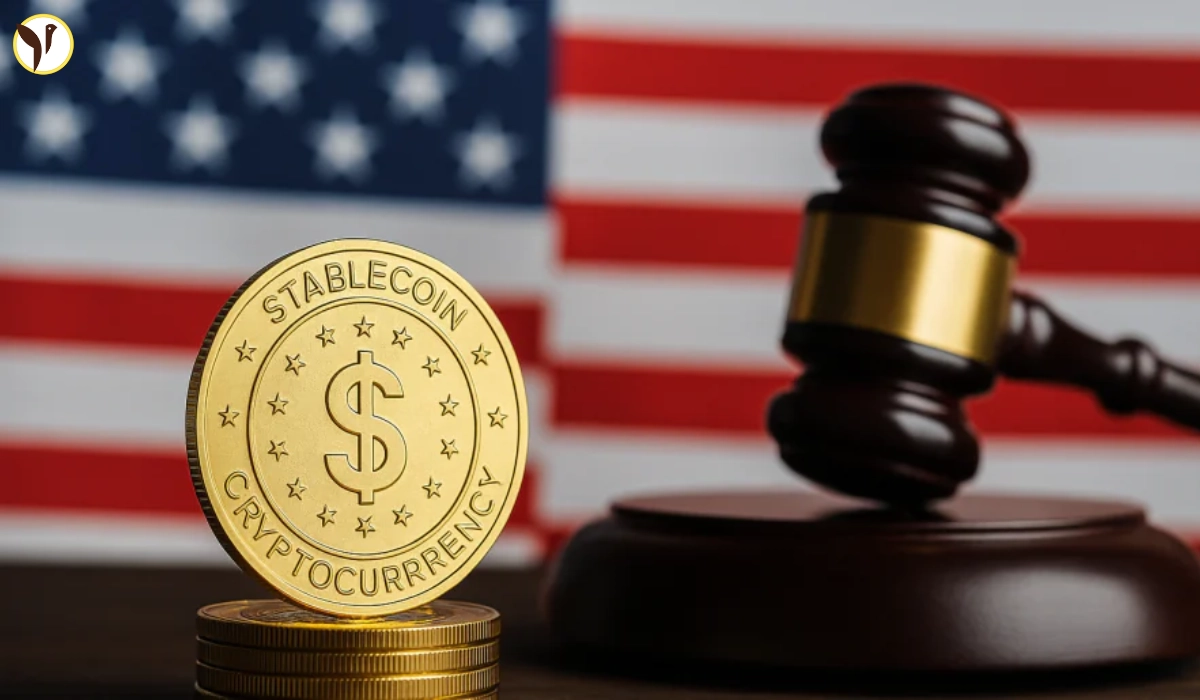Do Democrats and Republicans Agree on Cryptocurrency?
Unexpectedly, both parties united on cryptocurrency in a political environment when unity is uncommon. A significant law aimed at regulating stablecoins—a kind of cryptocurrency linked to the value of conventional currency like the US dollar—was approved by the US Senate on Monday. Indeed, it appears that lawmakers from both parties are saying, “Let’s actually figure this out — together,” for the first time.
So, What Is the Purpose of This Bill?
The bill’s central thesis is straightforward but impactful: digital currencies require serious regulation if they are to become a significant part of our economy.
This law, which is a component of the GENESIS Act, would mandate that businesses that produce stablecoins keep enough cash on hand to support those coins, obtain the appropriate state or federal license, and adhere to more stringent regulations regarding consumer protection and openness. To kill crypto is not the aim. The goal is to ensure its safety for financial institutions, investors, and the whole economy.
Why Now?
The past few years have seen a rollercoaster journey for the cryptocurrency markets. Many people, particularly those who got in without fully comprehending the risks, have been burnt in the wake of major crashes, bankruptcies, and fraud scandals.
Lawmakers have had enough. They are intervening before further damage is caused by the next major collapse. Leading this bipartisan effort are Senators Sherrod Brown (D) and Tim Scott (R), who both contend that the United States requires a strong and transparent framework to handle the rapidly evolving world of digital assets.
Will This Hurt Crypto Innovation?
That’s the main debate. Some members of the cryptocurrency community are concerned that excessive regulation may stifle creativity or make it more difficult for smaller businesses to compete with larger companies. Others contend that for cryptocurrency to develop in a sound, long‑term manner, regulation is precisely what it needs.
Consider it this way: regulations can serve as a guardrail rather than a barrier. And without one, cryptocurrency is currently booming.
What Takes Place Next?
The debate may get a little more heated in the House of Representatives, where the bill still needs to pass. Some House politicians have advocated for less regulation of cryptocurrency, preferring innovation over strict regulation. However, there is increasing hope that some form of this plan may become law because of the Senate vote’s tremendous momentum.
What You Should Know About This
This is a moment to watch whether you’re interested in the future of money, a crypto aficionado, or a casual investor. The U.S. government is now considering cryptocurrency as an actual component of the financial system rather than merely a passing fad or technological experiment. Future years’ use, trust, and regulation of digital assets may be influenced by the events of the next several months.
Sources: https://www.politico.com/live-updates/2025/05/19/congress/crypto-stablecoin-senate-bill-republicans-democrats-00357887
https://www.nbcnews.com/politics/congress/senate-advances-major-crypto-regulation-bill-bipartisan-vote-rcna207809









